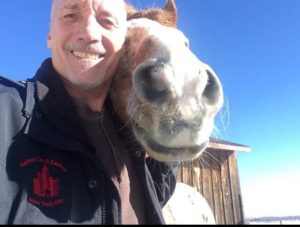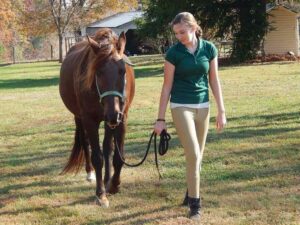 Today, I want to address a topic that’s very close to my heart – the welfare of equines in our uncertain economy.
Today, I want to address a topic that’s very close to my heart – the welfare of equines in our uncertain economy.
In these challenging times, it’s more important than ever to ensure our beloved horses, donkeys, mules, and all various subspecies, hybrids, and regional variations within these categories, receive the care, respect, and attention they deserve.
Our economy has been undergoing significant changes, and these changes have affected the equine world. From rising costs of hay and grain to increased land development, equine enthusiasts face a myriad of challenges. However, with dedication, knowledge, and collaboration, we can continue to provide the best possible lives for our equine companions.
Here are some essential considerations for ensuring the welfare of equines in today’s economy:
- Proper Nutrition: The rising cost of feed can be a significant
 concern. It’s crucial to prioritize proper nutrition for your animals. Consult with equine nutritionists to develop a balanced diet that suits your equine’s needs and your budget.
concern. It’s crucial to prioritize proper nutrition for your animals. Consult with equine nutritionists to develop a balanced diet that suits your equine’s needs and your budget. - Preventative Healthcare: Regular veterinary care is essential for preventing illnesses and addressing health concerns promptly. Establishing a good relationship with a local equine veterinarian can help ensure your animals receive the care they need.
- Education and Training: Investing time and resources in
 proper training and handling of equines can prevent accidents and injuries, saving both money and lives. There are many resources available, including local trainers and online courses.
proper training and handling of equines can prevent accidents and injuries, saving both money and lives. There are many resources available, including local trainers and online courses. - Responsible Breeding: In these uncertain times, it’s essential to consider the implications of breeding equines. Overpopulation can lead to overcrowded rescue facilities and increased expenses for the community. Responsible breeding practices are a must.
- Support Local Rescue Organizations: If you’re in a position to do so, consider supporting local equine rescue organizations. They often bear the brunt of the economic challenges and need all the help they can get to continue their vital work.
- Land Conservation: The encroachment of urban development on rural areas can limit the available space for equines. Advocating for land conservation and zoning regulations that protect equine-friendly environments is crucial.
- Financial Planning: Equine ownership comes with costs, and
 it’s vital to have a realistic financial plan in place. This includes budgeting for regular expenses and setting aside funds for emergencies.
it’s vital to have a realistic financial plan in place. This includes budgeting for regular expenses and setting aside funds for emergencies. - Community Engagement: Joining or supporting local equine clubs and organizations can provide valuable resources, networking opportunities, and a sense of community among fellow enthusiasts.
- Adopt Don’t Shop: Consider adopting from equine rescue
 organizations rather than buying from breeders. There are many deserving equines in need of loving homes.
organizations rather than buying from breeders. There are many deserving equines in need of loving homes. - Advocacy and Education: Get involved in advocacy efforts to promote equine welfare in your community. Educate others about responsible equine ownership and the challenges facing the equine community today.
Our commitment to the welfare of equines is as important as ever. Together, we can navigate the ups and downs of our economy while ensuring that our beloved equine companions live healthy, happy lives. By staying informed, working together, and advocating for positive change, we can make a positive impact on the lives of these majestic creatures.
Thank you for your dedication to equine welfare, and may your horse, donkey, and/or mule continue to bring joy to your lives.
